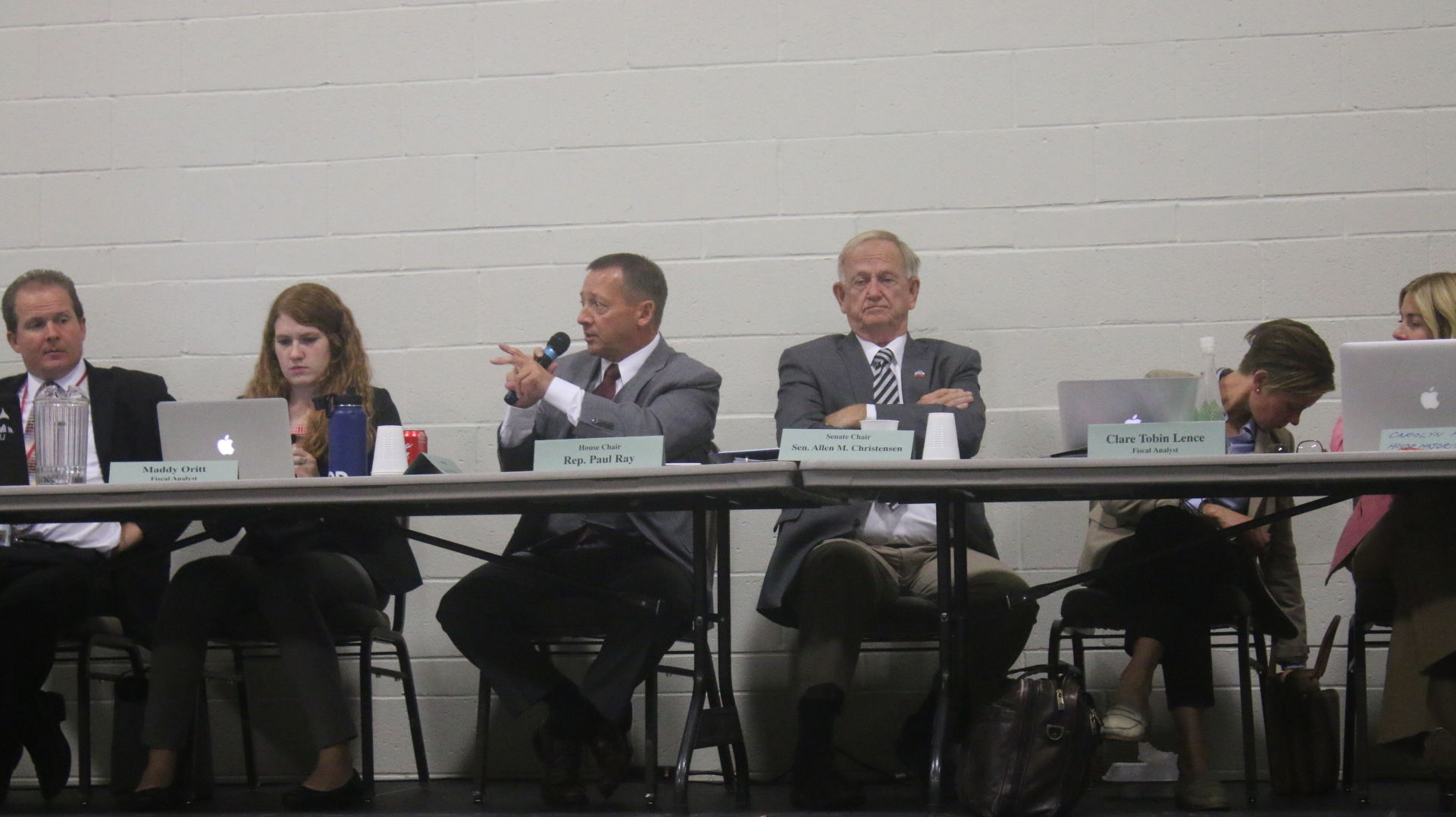A 23-year-old woman is released from the Carbon County jail. It is a Sunday morning.
She has no where to go, no vehicle to get there, and mutters to anyone within earshot that this life is not for her any longer. She was tired of it.
That was at 5:30 a.m.
By 6 a.m. she was dying of an overdose.
“The drugs were waiting for her in the park,” said Erin Garner. “This is why we need a transition center. She had no other transportation, no resources, she had nothing. This is why we need this.”
Garner shared the grim illustration of Carbon County’s own slice of the national opioid epidemic during Monday’s town hall, held in Price and attended by local and state leaders as well as numerous members of the public.
The town hall was held at the Carbon Events Center.
Between 2011 and 2016, drug overdose deaths involving opioids in Carbon County were 51.4 per 100,000 people, compared to 16.5 statewide and 9.5 nationally. That’s three times the average in Utah and about five and a half times the national average, according to the Utah Health Department.
Thankfully there has been a slight reduction in opioid deaths in Carbon County since then, according to Debbie Marvidakis, who joined a panel of treatment specialists at the town hall.
“Solutions for our crisis is going to come from the community,” she said.
She was one of a large panel of treatment experts, state and national government officials assembled to discuss the opioid overdose crisis afflicting us.
Nine panelists provided 29 suggestions to address the opioid crisis locally: nine for the supply/provider side and 20 for the demand/ user side.
“Opioid addiction is a chronic health problem,” said Danielle Prendergrass, a local physician.
Drug Enforcement Agent Brian Beser said Utah’s appetite for prescription medication is “voracious.”
“Eighty-percent of heroin users start out with prescription drugs. Counterfeit fentanyl operations are flourishing because of the vast profits that can be made. Doctors are as bad as cartels. Insurance drives Big Pharma, it needs to be reigned in,” he said.
The town hall drew a large crowd. They were given the opportunity to comment after the panel discussion.
Many shared personal stories of fighting drug addiction and losing loved ones to the disease.
“What are you really going to do to help us?” asked Pam, a woman who identified herself as a “drug addict since age 17.”
Federal authorities will get $8.4 billion in new funds to attack the nationwide epidemic after the U.S. Senate passed a bipartisan bill 99-1 on Monday. Utah Sen. Mike Lee (R) was the only dissenting vote against the legislation.
Solutions, struggles and stories of heartbreak shared at opioid town hall meeting

IMG_7635.JPG
